- Home
- Edith Wharton
The Touchstone
The Touchstone Read online
The Touchstone
Edith Wharton
The Project Gutenberg EBook of The Touchstone, by Edith Wharton
This eBook is for the use of anyone anywhere at no cost and with almost no restrictions whatsoever. You may copy it, give it away or re-use it under the terms of the Project Gutenberg License included with this eBook or online at www.gutenberg.org
Title: The Touchstone
Author: Edith Wharton
Posting Date: July 12, 2008 [EBook #267] Release Date: May, 1995
Language: English
Character set encoding: ASCII
*** START OF THIS PROJECT GUTENBERG EBOOK THE TOUCHSTONE ***
Produced by Judith Boss
THE TOUCHSTONE
By Edith Wharton
I
Professor Joslin, who, as our readers are doubtless aware, is engaged in writing the life of Mrs. Aubyn, asks us to state that he will be greatly indebted to any of the famous novelist’s friends who will furnish him with information concerning the period previous to her coming to England. Mrs. Aubyn had so few intimate friends, and consequently so few regular correspondents, that letters will be of special value. Professor Joslin’s address is 10 Augusta Gardens, Kensington, and he begs us to say that he “will promptly return any documents entrusted to him.”
Glennard dropped the Spectator and sat looking into the fire. The club was filling up, but he still had to himself the small inner room, with its darkening outlook down the rain-streaked prospect of Fifth Avenue. It was all dull and dismal enough, yet a moment earlier his boredom had been perversely tinged by a sense of resentment at the thought that, as things were going, he might in time have to surrender even the despised privilege of boring himself within those particular four walls. It was not that he cared much for the club, but that the remote contingency of having to give it up stood to him, just then, perhaps by very reason of its insignificance and remoteness, for the symbol of his increasing abnegations; of that perpetual paring-off that was gradually reducing existence to the naked business of keeping himself alive. It was the futility of his multiplied shifts and privations that made them seem unworthy of a high attitude; the sense that, however rapidly he eliminated the superfluous, his cleared horizon was likely to offer no nearer view of the one prospect toward which he strained. To give up things in order to marry the woman one loves is easier than to give them up without being brought appreciably nearer to such a conclusion.
Through the open door he saw young Hollingsworth rise with a yawn from the ineffectual solace of a brandy-and-soda and transport his purposeless person to the window. Glennard measured his course with a contemptuous eye. It was so like Hollingsworth to get up and look out of the window just as it was growing too dark to see anything! There was a man rich enough to do what he pleased—had he been capable of being pleased—yet barred from all conceivable achievement by his own impervious dulness; while, a few feet off, Glennard, who wanted only enough to keep a decent coat on his back and a roof over the head of the woman he loved, Glennard, who had sweated, toiled, denied himself for the scant measure of opportunity that his zeal would have converted into a kingdom—sat wretchedly calculating that, even when he had resigned from the club, and knocked off his cigars, and given up his Sundays out of town, he would still be no nearer attainment.
The Spectator had slipped to his feet and as he picked it up his eye fell again on the paragraph addressed to the friends of Mrs. Aubyn. He had read it for the first time with a scarcely perceptible quickening of attention: her name had so long been public property that his eye passed it unseeingly, as the crowd in the street hurries without a glance by some familiar monument.
“Information concerning the period previous to her coming to England….” The words were an evocation. He saw her again as she had looked at their first meeting, the poor woman of genius with her long pale face and short-sighted eyes, softened a little by the grace of youth and inexperience, but so incapable even then of any hold upon the pulses. When she spoke, indeed, she was wonderful, more wonderful, perhaps, than when later, to Glennard’s fancy at least, the conscious of memorable things uttered seemed to take from even her most intimate speech the perfect bloom of privacy. It was in those earliest days, if ever, that he had come near loving her; though even then his sentiment had lived only in the intervals of its expression. Later, when to be loved by her had been a state to touch any man’s imagination, the physical reluctance had, inexplicably, so overborne the intellectual attraction, that the last years had been, to both of them, an agony of conflicting impulses. Even now, if, in turning over old papers, his hand lit on her letters, the touch filled him with inarticulate misery….
“She had so few intimate friends… that letters will be of special value.” So few intimate friends! For years she had had but one; one who in the last years had requited her wonderful pages, her tragic outpourings of love, humility, and pardon, with the scant phrases by which a man evades the vulgarest of sentimental importunities. He had been a brute in spite of himself, and sometimes, now that the remembrance of her face had faded, and only her voice and words remained with him, he chafed at his own inadequacy, his stupid inability to rise to the height of her passion. His egoism was not of a kind to mirror its complacency in the adventure. To have been loved by the most brilliant woman of her day, and to have been incapable of loving her, seemed to him, in looking back, the most derisive evidence of his limitations; and his remorseful tenderness for her memory was complicated with a sense of irritation against her for having given him once for all the measure of his emotional capacity. It was not often, however, that he thus probed the past. The public, in taking possession of Mrs. Aubyn, had eased his shoulders of their burden. There was something fatuous in an attitude of sentimental apology toward a memory already classic: to reproach one’s self for not having loved Margaret Aubyn was a good deal like being disturbed by an inability to admire the Venus of Milo. From her cold niche of fame she looked down ironically enough on his self-flagellations…. It was only when he came on something that belonged to her that he felt a sudden renewal of the old feeling, the strange dual impulse that drew him to her voice but drove him from her hand, so that even now, at sight of anything she had touched, his heart contracted painfully. It happened seldom nowadays. Her little presents, one by one, had disappeared from his rooms, and her letters, kept from some unacknowledged puerile vanity in the possession of such treasures, seldom came beneath his hand….
“Her letters will be of special value—” Her letters! Why, he must have hundreds of them—enough to fill a volume. Sometimes it used to seem to him that they came with every post—he used to avoid looking in his letter-box when he came home to his rooms—but her writing seemed to spring out at him as he put his key in the door—.
He stood up and strolled into the other room. Hollingsworth, lounging away from the window, had joined himself to a languidly convivial group of men to whom, in phrases as halting as though they struggled to define an ultimate idea, he was expounding the cursed nuisance of living in a hole with such a damned climate that one had to get out of it by February, with the contingent difficulty of there being no place to take one’s yacht to in winter but that other played-out hole, the Riviera. From the outskirts of this group Glennard wandered to another, where a voice as different as possible from Hollingsworth’s colorless organ dominated another circle of languid listeners.
“Come and hear Dinslow talk about his patent: admission free,” one of the men sang out in a tone of mock resignation.
Dinslow turned to Glennard the confident pugnacity of his smile. “Give it another six months and it’ll be talking about itself,” he declared. “It’s pretty nearly articulate now.”
“Can it say papa?” so
meone else inquired.
Dinslow’s smile broadened. “You’ll be deuced glad to say papa to IT a year from now,” he retorted. “It’ll be able to support even you in affluence. Look here, now, just let me explain to you—”
Glennard moved away impatiently. The men at the club—all but those who were “in it”—were proverbially “tired” of Dinslow’s patent, and none more so than Glennard, whose knowledge of its merits made it loom large in the depressing catalogue of lost opportunities. The relations between the two men had always been friendly, and Dinslow’s urgent offers to “take him in on the ground floor” had of late intensified Glennard’s sense of his own inability to meet good luck half way. Some of the men who had paused to listen were already in evening clothes, others on their way home to dress; and Glennard, with an accustomed twinge of humiliation, said to himself that if he lingered among them it was in the miserable hope that one of the number might ask him to dine. Miss Trent had told him that she was to go to the opera that evening with her rich aunt; and if he should have the luck to pick up a dinner-invitation he might join her there without extra outlay.
He moved about the room, lingering here and there in a tentative affectation of interest; but though the men greeted him pleasantly no one asked him to dine. Doubtless they were all engaged, these men who could afford to pay for their dinners, who did not have to hunt for invitations as a beggar rummages for a crust in an ash-barrel! But no—as Hollingsworth left the lessening circle about the table an admiring youth called out—“Holly, stop and dine!”
Hollingsworth turned on him the crude countenance that looked like the wrong side of a more finished face. “Sorry I can’t. I’m in for a beastly banquet.”
Glennard threw himself into an armchair. Why go home in the rain to dress? It was folly to take a cab to the opera, it was worse folly to go there at all. His perpetual meetings with Alexa Trent were as unfair to the girl as they were unnerving to himself. Since he couldn’t marry her, it was time to stand aside and give a better man the chance—and his thought admitted the ironical implication that in the terms of expediency the phrase might stand for Hollingsworth.
II
He dined alone and walked home to his rooms in the rain. As he turned into Fifth Avenue he caught the wet gleam of carriages on their way to the opera, and he took the first side street, in a moment of irritation against the petty restrictions that thwarted every impulse. It was ridiculous to give up the opera, not because one might possibly be bored there, but because one must pay for the experiment.
In his sitting-room, the tacit connivance of the inanimate had centred the lamplight on a photograph of Alexa Trent, placed, in the obligatory silver frame, just where, as memory officiously reminded him, Margaret Aubyn’s picture had long throned in its stead. Miss Trent’s features cruelly justified the usurpation. She had the kind of beauty that comes of a happy accord of face and spirit. It is not given to many to have the lips and eyes of their rarest mood, and some women go through life behind a mask expressing only their anxiety about the butcher’s bill or their inability to see a joke. With Miss Trent, face and mind had the same high serious contour. She looked like a throned Justice by some grave Florentine painter; and it seemed to Glennard that her most salient attribute, or that at least to which her conduct gave most consistent expression, was a kind of passionate justice—the intuitive feminine justness that is so much rarer than a reasoned impartiality. Circumstances had tragically combined to develop this instinct into a conscious habit. She had seen more than most girls of the shabby side of life, of the perpetual tendency of want to cramp the noblest attitude. Poverty and misfortune had overhung her childhood and she had none of the pretty delusions about life that are supposed to be the crowning grace of girlhood. This very competence, which gave her a touching reasonableness, made Glennard’s situation more difficult than if he had aspired to a princess bred in the purple. Between them they asked so little—they knew so well how to make that little do—but they understood also, and she especially did not for a moment let him forget, that without that little the future they dreamed of was impossible.
The sight of her photograph quickened Glennard’s exasperation. He was sick and ashamed of the part he was playing. He had loved her now for two years, with the tranquil tenderness that gathers depth and volume as it nears fulfilment; he knew that she would wait for him—but the certitude was an added pang. There are times when the constancy of the woman one cannot marry is almost as trying as that of the woman one does not want to.
Glennard turned up his reading-lamp and stirred the fire. He had a long evening before him and he wanted to crowd out thought with action. He had brought some papers from his office and he spread them out on his table and squared himself to the task….
It must have been an hour later that he found himself automatically fitting a key into a locked drawer. He had no more notion than a somnambulist of the mental process that had led up to this action. He was just dimly aware of having pushed aside the papers and the heavy calf volumes that a moment before had bounded his horizon, and of laying in their place, without a trace of conscious volition, the parcel he had taken from the drawer.
The letters were tied in packets of thirty or forty. There were a great many packets. On some of the envelopes the ink was fading; on others, which bore the English post-mark, it was still fresh. She had been dead hardly three years, and she had written, at lengthening intervals, to the last….
He undid one of the earlier packets—little notes written during their first acquaintance at Hillbridge. Glennard, on leaving college, had begun life in his uncle’s law office in the old university town. It was there that, at the house of her father, Professor Forth, he had first met the young lady then chiefly distinguished for having, after two years of a conspicuously unhappy marriage, returned to the protection of the paternal roof.
Mrs. Aubyn was at that time an eager and somewhat tragic young woman, of complex mind and undeveloped manners, whom her crude experience of matrimony had fitted out with a stock of generalizations that exploded like bombs in the academic air of Hillbridge. In her choice of a husband she had been fortunate enough, if the paradox be permitted, to light on one so signally gifted with the faculty of putting himself in the wrong that her leaving him had the dignity of a manifesto—made her, as it were, the spokeswoman of outraged wifehood. In this light she was cherished by that dominant portion of Hillbridge society which was least indulgent to conjugal differences, and which found a proportionate pleasure in being for once able to feast openly on a dish liberally seasoned with the outrageous. So much did this endear Mrs. Aubyn to the university ladies that they were disposed from the first to allow her more latitude of speech and action than the illused wife was generally accorded in Hillbridge, where misfortune was still regarded as a visitation designed to put people in their proper place and make them feel the superiority of their neighbors. The young woman so privileged combined with a kind of personal shyness an intellectual audacity that was like a deflected impulse of coquetry: one felt that if she had been prettier she would have had emotions instead of ideas. She was in fact even then what she had always remained: a genius capable of the acutest generalizations, but curiously undiscerning where her personal susceptibilities were concerned. Her psychology failed her just where it serves most women and one felt that her brains would never be a guide to her heart. Of all this, however, Glennard thought little in the first year of their acquaintance. He was at an age when all the gifts and graces are but so much undiscriminated food to the ravening egoism of youth. In seeking Mrs. Aubyn’s company he was prompted by an intuitive taste for the best as a pledge of his own superiority. The sympathy of the cleverest woman in Hillbridge was balm to his craving for distinction: it was public confirmation of his secret sense that he was cut out for a bigger place. It must not be understood that Glennard was vain. Vanity contents itself with the coarsest diet; there is no palate so fastidious as that of self-distrust. To a youth of Glennard’
s aspirations the encouragement of a clever woman stood for the symbol of all success. Later, when he had begun to feel his way, to gain a foothold, he would not need such support; but it served to carry him lightly and easily over what is often a period of insecurity and discouragement.
It would be unjust, however, to represent his interest in Mrs. Aubyn as a matter of calculation. It was as instinctive as love, and it missed being love by just such a hair-breadth deflection from the line of beauty as had determined the curve of Mrs. Aubyn’s lips. When they met she had just published her first novel, and Glennard, who afterward had an ambitious man’s impatience of distinguished women, was young enough to be dazzled by the semi-publicity it gave her. It was the kind of book that makes elderly ladies lower their voices and call each other “my dear” when they furtively discuss it; and Glennard exulted in the superior knowledge of the world that enabled him to take as a matter of course sentiments over which the university shook its head. Still more delightful was it to hear Mrs. Aubyn waken the echoes of academic drawing-rooms with audacities surpassing those of her printed page. Her intellectual independence gave a touch of comradeship to their intimacy, prolonging the illusion of college friendships based on a joyous interchange of heresies. Mrs. Aubyn and Glennard represented to each other the augur’s wink behind the Hillbridge idol: they walked together in that light of young omniscience from which fate so curiously excludes one’s elders.
Husbands who are notoriously inopportune, may even die inopportunely, and this was the revenge that Mr. Aubyn, some two years after her return to Hillbridge, took upon his injured wife. He died precisely at the moment when Glennard was beginning to criticise her. It was not that she bored him; she did what was infinitely worse—she made him feel his inferiority. The sense of mental equality had been gratifying to his raw ambition; but as his self-knowledge defined itself, his understanding of her also increased; and if man is at times indirectly flattered by the moral superiority of woman, her mental ascendency is extenuated by no such oblique tribute to his powers. The attitude of looking up is a strain on the muscles; and it was becoming more and more Glennard’s opinion that brains, in a woman, should be merely the obverse of beauty. To beauty Mrs. Aubyn could lay no claim; and while she had enough prettiness to exasperate him by her incapacity to make use of it, she seemed invincibly ignorant of any of the little artifices whereby women contrive to palliate their defects and even to turn them into graces. Her dress never seemed a part of her; all her clothes had an impersonal air, as though they had belonged to someone else and been borrowed in an emergency that had somehow become chronic. She was conscious enough of her deficiencies to try to amend them by rash imitations of the most approved models; but no woman who does not dress well intuitively will ever do so by the light of reason, and Mrs. Aubyn’s plagiarisms, to borrow a metaphor of her trade, somehow never seemed to be incorporated with the text.

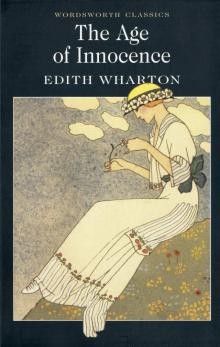 The Age of Innocence
The Age of Innocence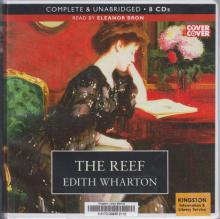 The Reef
The Reef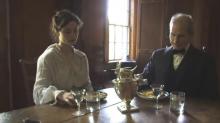 Summer
Summer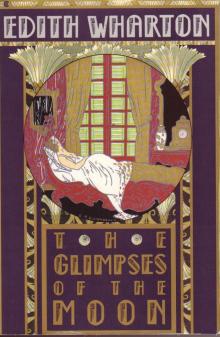 The Glimpses of the Moon
The Glimpses of the Moon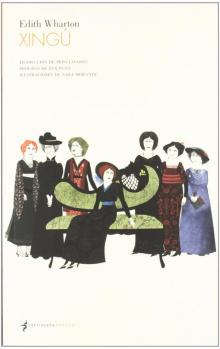 Xingu
Xingu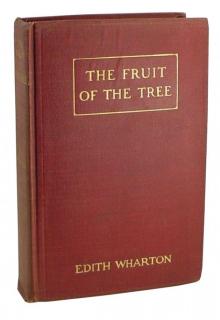 The Fruit of the Tree
The Fruit of the Tree Fast and Loose
Fast and Loose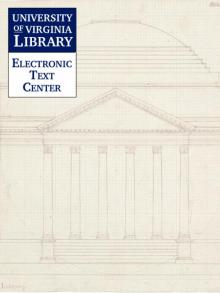 Artemis to Actaeon and Other Verse
Artemis to Actaeon and Other Verse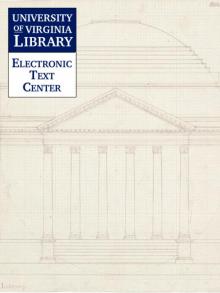 The Line of Least Resistance
The Line of Least Resistance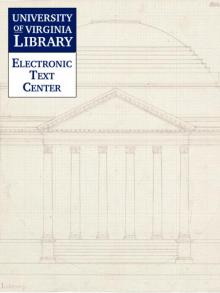 The Lamp of Psyche
The Lamp of Psyche The Reckoning
The Reckoning Afterward
Afterward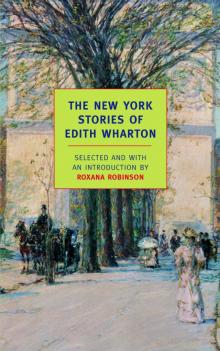 The New York Stories of Edith Wharton
The New York Stories of Edith Wharton The 2014 Halloween Horrors Megapack
The 2014 Halloween Horrors Megapack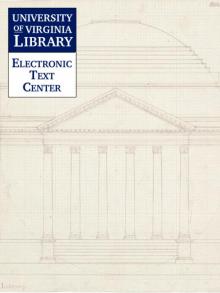 'Copy': A Dialogue
'Copy': A Dialogue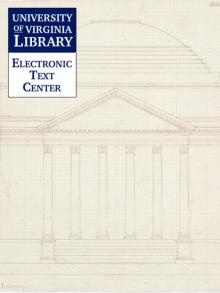 The Recovery
The Recovery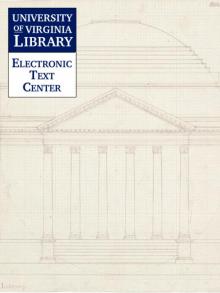 The Fulness of Life
The Fulness of Life Early Short Stories Vol. 1
Early Short Stories Vol. 1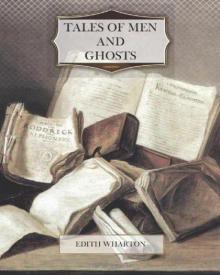 Tales of Men and Ghosts
Tales of Men and Ghosts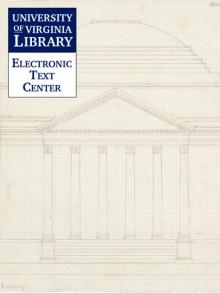 The House of the Dead Hand
The House of the Dead Hand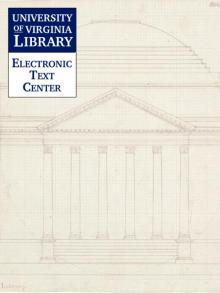 That Good May Come
That Good May Come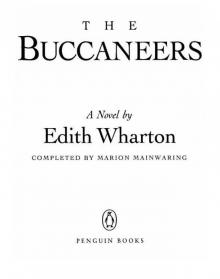 The Buccaneers
The Buccaneers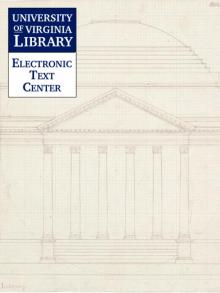 Other Times, Other Manners
Other Times, Other Manners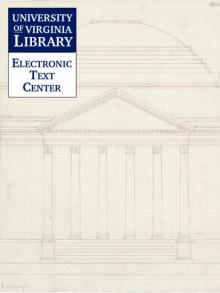 The Hermit and the Wild Woman
The Hermit and the Wild Woman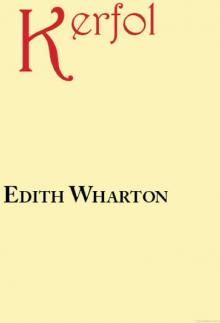 Kerfol
Kerfol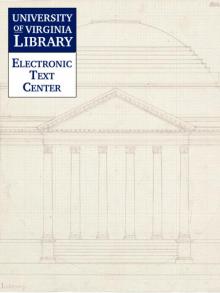 The Duchess at Prayer
The Duchess at Prayer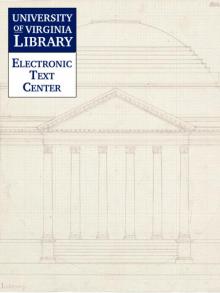 Bunner Sisters
Bunner Sisters The Choice
The Choice Madame De Treymes
Madame De Treymes Ethan Frome, Summer, Bunner Sisters
Ethan Frome, Summer, Bunner Sisters In Morocco
In Morocco The Valley of Decision
The Valley of Decision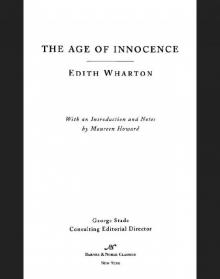 Age of Innocence (Barnes & Noble Classics Series)
Age of Innocence (Barnes & Noble Classics Series)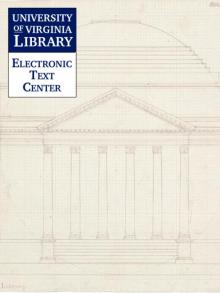 The Angel at the Grave
The Angel at the Grave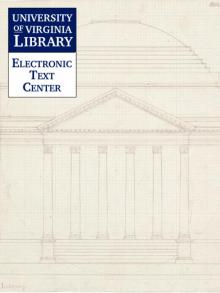 April Showers
April Showers Sanctuary
Sanctuary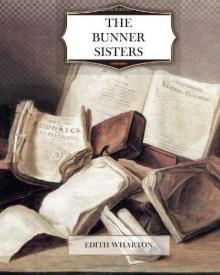 The Bunner Sisters
The Bunner Sisters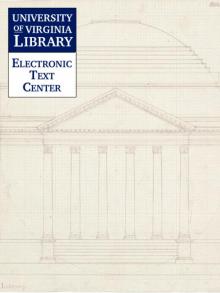 Mrs. Manstey's View
Mrs. Manstey's View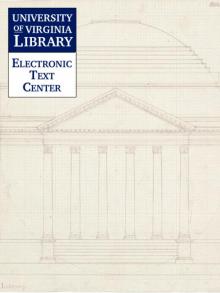 Writing a War Story
Writing a War Story The Custom of the Country
The Custom of the Country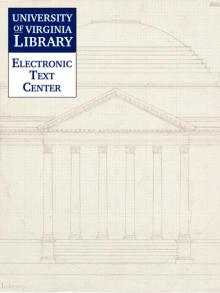 In Trust
In Trust The Triumph of the Night
The Triumph of the Night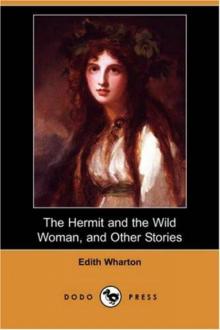 The Hermit and the Wild Woman, and Other Stories
The Hermit and the Wild Woman, and Other Stories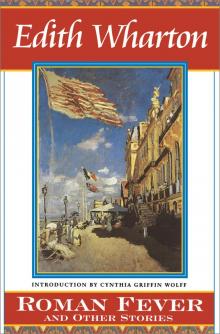 Roman Fever and Other Stories
Roman Fever and Other Stories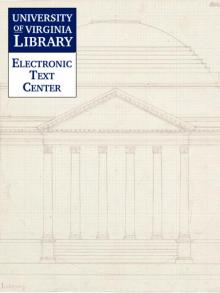 The Mission of Jane
The Mission of Jane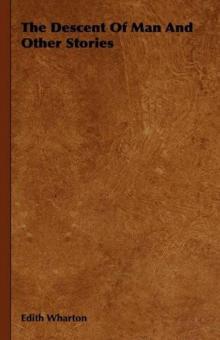 The Descent of Man and Other Stories
The Descent of Man and Other Stories Coming Home
Coming Home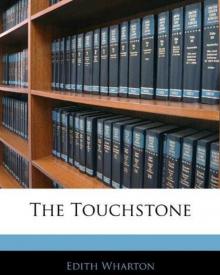 The Touchstone
The Touchstone Early Short Stories Vol. 2
Early Short Stories Vol. 2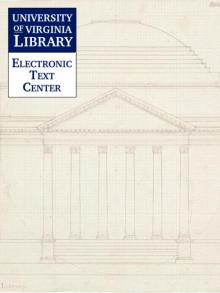 Edith Wharton's Verse, 1879-1919, from various journals.
Edith Wharton's Verse, 1879-1919, from various journals.